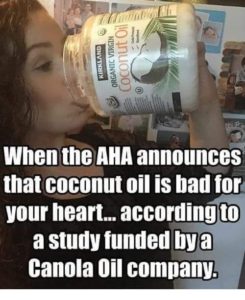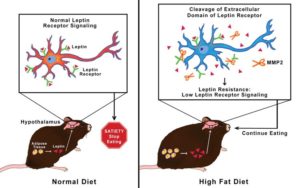
LED lights are making us blind and wreaking havoc on our endocrine systems, peer-reviewed studies show… Leading photobiologist recommends switching back to sunlight, candles and incandescent bulbs

Toms Blog on Life and Livingness

LED lights are making us blind and wreaking havoc on our endocrine systems, peer-reviewed studies show… Leading photobiologist recommends switching back to sunlight, candles and incandescent bulbs

Had I been adequately listened to, tested and diagnosed, I wouldn’t have had to suffer so greatly all of those years.
https://thyroidpharmacist.com/articles/4-steps-to-diagnose-hashimotos-and-monitor-treatment/


When Dr. Paul Winchester, a pediatrician, moved to Indiana from Colorado in 2002, he noticed something disturbing—a high number of birth defects.
“I was used to the number of birth defects I should see in a community hospital, and I saw many more in Indiana,” said Winchester, who is medical director of the Neonatal and Intensive Care Unit at St. Francis Hospital in Indianapolis.
Winchester decided to investigate the reason for the higher numbers of birth defects. His research zeroed in on the herbicide atrazine, one of the most widely used herbicides in the U.S. and the most commonly detected pesticide in U.S. drinking water.
Winchester and several other researchers including Michael Skinner, professor of biology at Washington State University’s Center for Reproductive Biology, conducted a study to see if there was a link between atrazine in drinking water and birth defects.
Studies have found that atrazine is an endocrine disruptor, a substance that can alter the human hormonal system. Atrazine was banned by the European Union because of its persistent groundwater contamination.
In their study, Winchester and his team found that concentrations of atrazine in drinking water were highest in May and June when farmers sprayed their fields with the herbicide. They also found that birth defects peaked during the same months indicating a close correlation.
“We plotted water concentrations and birth defects, and they fit like a hat,” Winchester said.
https://www.ecowatch.com/generational-harm-of-pesticides-2596453994.html
https://www.ecowatch.com/generational-harm-of-pesticides-2596453994.html


Canola oil has practically taken over as the food processing industry’s oil of choice. Whether it’s mayonnaise, chips, salad dressings and other snack foods, canola oil is usually the first, second or third ingredient on the list. Unfortunately, the health dangers of canola oil are far beyond what we’ve been led to believe.
So if there aren’t any actual health reasons to use it, why would it be so widely utilized throughout the processed food industry? As with most reasons certain ingredients are used over others – the price. Canola oil is extremely inexpensive to grow and harvest. Being a genetically modified food, insects won’t go near canola oil, making it incredibly easy to grow.
Canola oil was first created in the early 1970s as a natural oil, but in 1995, Monsanto created a genetically modified version of canola oil. By 2009, over 90 percent of the Canadian canola oil crop was genetically engineered (1).
What is Canola Oil?
Canola oil comes from a descendant of the rapeseed plant, a member of the Brassica genus, along with some of our favourite vegetables like kale, broccoli, cauliflower and cabbage. Rapeseed oil was put on the market for human consumption in the 1950s, but not many people wanted to consume it due to its strong flavour and off-putting colour.
Scientists at the time began to discover that erucic acid, one of the major fatty acid components of the oil (over 50%), was damaging to heart tissue. Meanwhile, olive oil started being marketed as the next big thing in health. So what did marketers do for rapeseed oil? Give it a makeover of course! After some selective breeding and careful marketing, rapeseed oil was now low in erucic acid, high in oleic acid (just like heart-healthy olive oil), high in omega-3 fats and also neutral tasting. The name rapeseed was replaced with canola (the term can from canada, and ola for oil) (2).
While canola oil has been marketed as a health-food oil, low in saturated fats and a source of omega-3 fatty acids, it is very far from that. Canola oil is not only genetically modified, but it is highly processed and refined, both of which contribute to major health problems in the body.
8 Health Dangers of Canola Oil
Canola oil isn’t the healthy oil you’ve been led to believe. There are so many dangers of canola oil, that anyone in their right mind would stay away from it. Here are just a few reasons why canola oil should never set foot in your home again.
1. Canola Oil is Hydrogenated Oil
All oils, unless they’re “cold-pressed” or “extra-virgin” are refined. This process includes caustic refining, bleaching, and degumming – all which involve high temperatures or chemicals that are damaging to the human body. Last but not least comes the deodorization process. Because canola oil is high in omega-3 fatty acids, it becomes easily rancid and foul-smelling when subjected to oxygen and high temperatures. The standard deodorization process removes a large portion of the omega-3 fatty acids by turning them into trans-fatty acids (3).
If you’re consuming any vegetable oils that are oxidized from heat and light in processing, you are also exposing your body tissues to oxidized or rancid products. This contributes to degenerative diseases and chronic inflammation.
2. Genetically Modified Product
Almost all canola oil is produced from genetically modified crops. More than 90% of all canola oil is produced from genetically engineered crops. While genetic modification was successful at lowering the erucic acid content, it also increased the amount of oleic acid.
Oleic acid has been linked to a number of health concerns such as:
– Retarded growth (banned in infant formulas)
– Abnormalities in blood platelets
– Damage from free radicals
– Increased risk of developing certain cancer types
Genetically engineered foods also pose some very serious health concerns like allergic reactions, immuno-suppression, toxicity, and loss of nutrition through the foods we eat (4).
3. Increased Risk of Developing Cancer
Canola oil is extremely unstable under heat, light and pressure, which causes oxidation and releases free radicals inside the body. When canola oil is heated (aka. when we cook with it), it produces high levels of butadiene, benzene, acrolein, formaldehyde and other nasty compounds. These chemical compounds, combined with increased free radicals create the perfect environment for cancer growth.
Researchers have found that cancer cells feed on the oleic acid in canola oil. The acid causes the cancer cells to become stronger and maintain malignancy (5). Additional research has also shown that oleic acid promotes tumour progressions (6).
With the amount of free radicals released in canola oil after cooking, it’s no wonder this oil is a trigger for cancer growth. Free radicals are highly reactive chemicals that play a major role in cancerous cell mutation (7).
4. Contributes To Heart Disease
While genetic modification has lowered erucic acid levels in canola oil, it is still a major source of the acid. Erucic acid is a fatty acid that has been associated with heart damage, specifically Keshan disease, a disease that creates fibrotic lesions of the heart. Studies have shown that in areas where people are prone to Keshan, erucic acid levels are higher, and selenium levels are lower (8).
Partially hydrogenated oils like canola are also known for causing high levels of inflammation in the body, as well as calcification of the arteries. Both inflammation and calcification are major risk factors for coronary heart disease (9).
5. Interferes with Healthy Brain Function
A new study out of the Lewis Katz School of Medicine at Temple University and published in the journal Scientific Reports has linked canola oil with a decrease in memory and learning indicative of Alzheimer’s disease – the most common form of dementia (10). The study found that the brains of canola-oil treated mice had higher amounts of amyloid plaques as well as diminished contact between brain neurons.
Canola oil, being an inflammatory food, contributes to poor brain function. Chronic inflammation, as you might already know, is detrimental to the body. It attacks healthy cells, blood vessels and tissues instead of protecting them. It can shut down energy production in brain cells and slow down the firing of neurons, contributing to ADHD, anxiety, brain fog, depression, memory loss and Alzheimer’s (11).
6. Hypertension and Strokes
Studies have found that rapeseed oil and some other vegetable oils shortens the life span of stroke-prone and hypertensive animal subjects. One study discovered that rats bred to have high blood pressure and proneness to stroke died sooner when fed canola oil as the sole source of fat. On the flip side, rats fed the non-canola oil-based diets lived longer (12).
Another study published in Toxicology Letters looked at the effects of canola oil on blood coagulation time, or how long it took blood to clot in stroke-prone animal subjects. The study found that there was a “canola oil-induced shortening of blood coagulation time and increased fragility in [red blood cell membranes],” which may trigger strokes in animal subjects who are stroke-prone (13).
7. Kidney and Liver Problems
Being a genetically modified food product, canola oil takes a toll on our liver and kidneys.
A 2011 review of 19 different studies that involved mammals being fed genetically modified soy and corn for a period of 90 days, found that GMO foods can disrupt kidney and liver function. The review, published in Environmental Sciences Europe, stated that in the trials mentioned, kidney function was reduced by 43.5%, while liver function was reduced by 30.8%.
If you want your detox organs to work properly, avoid canola oil, and other GM products.
8. May Hamper Normal Growth in Children
Erucic acid in canola oil was the main reason canola oil was banned from use in infant formula. The erucic acid in canola oil is harmful to infants, due to an inability to properly break it down. While the FDA previously made canola oil illegal for use in baby formula, that isn’t the case anymore. As of a few years ago, canola oil made it to the generally recognized as safe list (14), meaning that infant formula companies can use all the canola oil they want in their formula.
Best Oils to Substitute for Canola Oil
So which oils can you use? It depends on what you’re using it for!
1. Coconut Oil
Coconut oil is best when it is cold-pressed and virgin. Try your best to avoid refined coconut oil. Coconut oil has a high heat threshold, meaning it doesn’t turn into trans-fatty acids when heated. Coconut oil contains medium-chain fatty acids, too, which support a healthy nervous system, and also encourage fat loss.
2. Olive Oil
While I would never personally cook with olive oil (it is a very delicate oil), using it on salads and other non-cooking applications is a great option. Look for an organic extra-virgin or cold-pressed olive oil that’s available in dark-coloured glass. Some fake olive oils are mixed with cheaper, GMO vegetable oils, so always make sure it is GMO-free and organic.
3. Avocado Oil
Avocado oil has a high smoke point like coconut oil, so it can safely be cooked with at high temperatures. Alternatively, you can also use this oil in its raw form on salads and the like.
8 Health Dangers of Canola Oil: Not the Healthy Oil You’ve Been Led to Believe
https://livelovefruit.com/8-health-dangers-of-canola-oil/
Facebook/Google+/WorldTruth/Trooth/Blog/Pinterest
THE MYSTERIOUS VIRUS THAT COULD CAUSE OBESITY
Randy was scratched by a rooster and straight away, his eating pattern changed. So did his weight. The researchers acknowledge that the rooster scratch may have been the start of Randy’s infection. But they are cautious—the transmissibility of the Ad-36 virus from chickens to humans has never directly been studied.
https://www.wired.com/2016/12/mysterious-virus-cause-obesity/

I would be very interested to know what fats the mice were fed as this goes completely against the ketogenic diet.
I also find it interesting that the focus in the article is on how to find a drug that will solve it rather than what can we do to alter our diet and lifestyle to preent the problem. – Tom
Summary: Researchers report mice fed a high fat diet produce an enzyme called MMP-2, which results in leptin being blocked from binding to its receptors. This, they report, prevents neurons from signaling that the stomach is full. The study suggests blocking MMP-2 may help people with obesity to lose weight.
An international team of researchers has uncovered a destructive mechanism at the molecular level that causes a well-known phenomenon associated with obesity, called leptin resistance.
They found that mice fed a high-fat diet produce an enzyme named MMP-2 that clips receptors for the hormone leptin from the surface of neuronal cells in the hypothalamus. This blocks leptin from binding to its receptors. This in turn keeps the neurons from signaling that your stomach is full and you should stop eating.
This is the first time that a destructive molecular mechanism has been observed and described.
https://neurosciencenews.com/leptin-obesity-overeating-9739/


Love it!

According to a report, there has been a dramatic rise in children misusing and overdosing on ADHD medications. I happened to see that report a day after I read another study revealing an increased risk for obesity and diabetes in kids who take ADHD meds. This is not to be confused with the recent research showing that ADHD drugs could be linked to brittle bones. These must all be added, of course, to the cacophony of already known side effects, including insomnia, irritability, decreased appetite, depression, and suicidal thoughts.
Maybe this is why a majority of kids diagnosed with ADHD wind up developing other mental illnesses as they grow older. Pharmaceutical companies cite that latter detail as proof of the biological basis of ADHD. I think it is much easier to see it as proof of the pharmacological basis for the mysterious rise in mental illnesses across America. Drug companies and the psychiatric industry have so far gotten almost 20 percent of the country onto psychiatric drugs. Many of these drugs cause suicidal thoughts, anxiety, and depression. Meanwhile, a lot of Americans are having suicidal thoughts, anxiety, and depression. One need not be a detective to notice a potential causal relationship here.